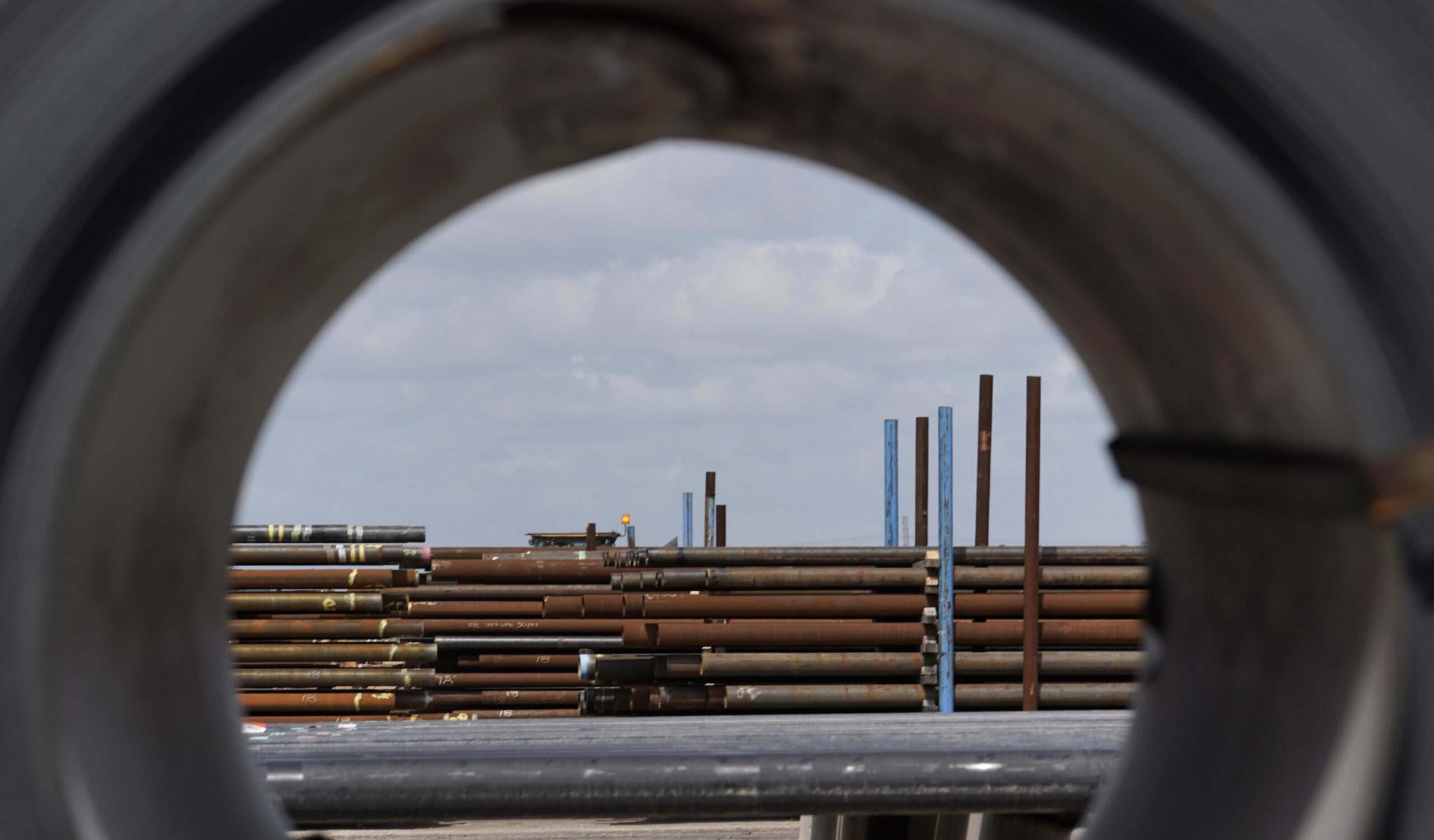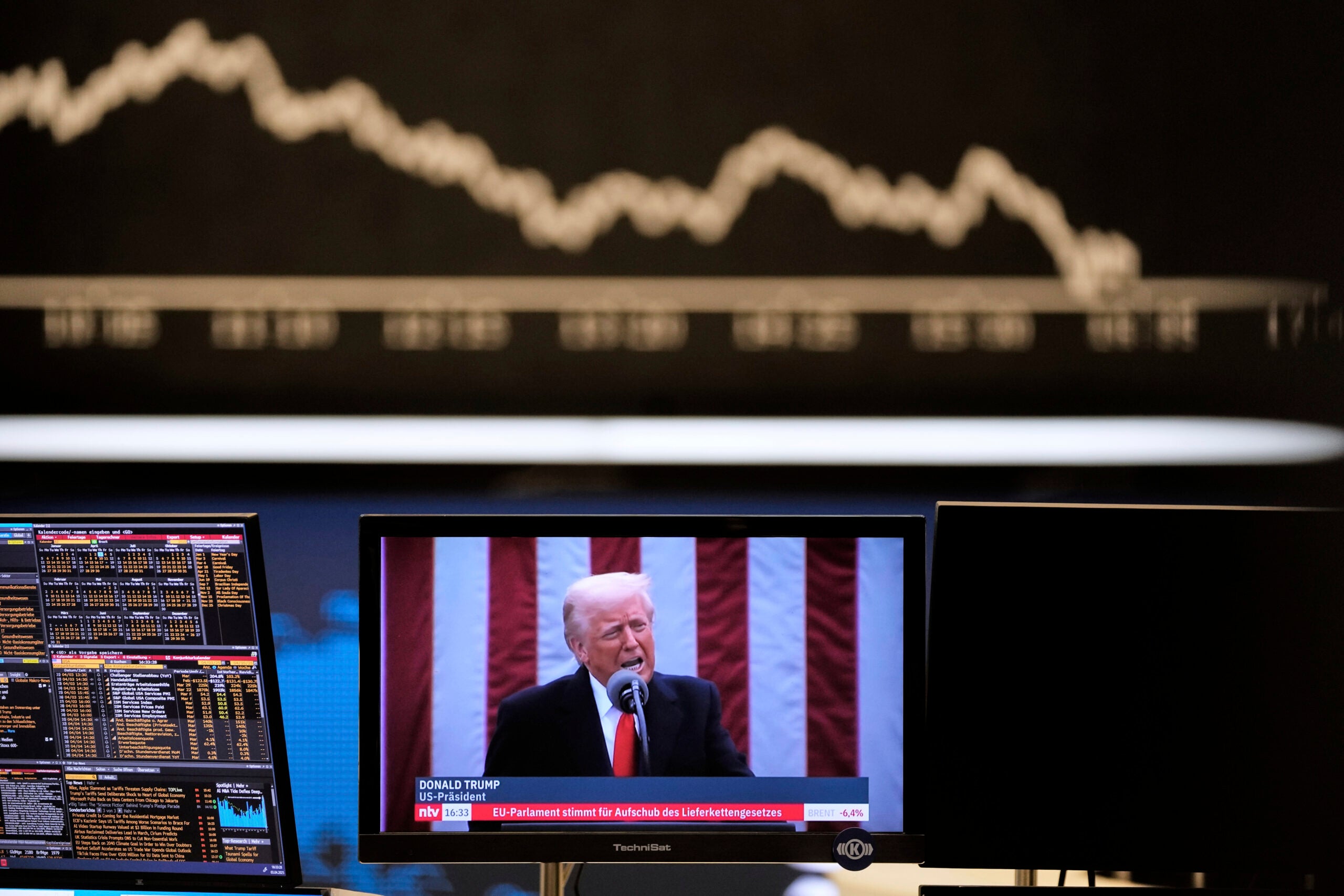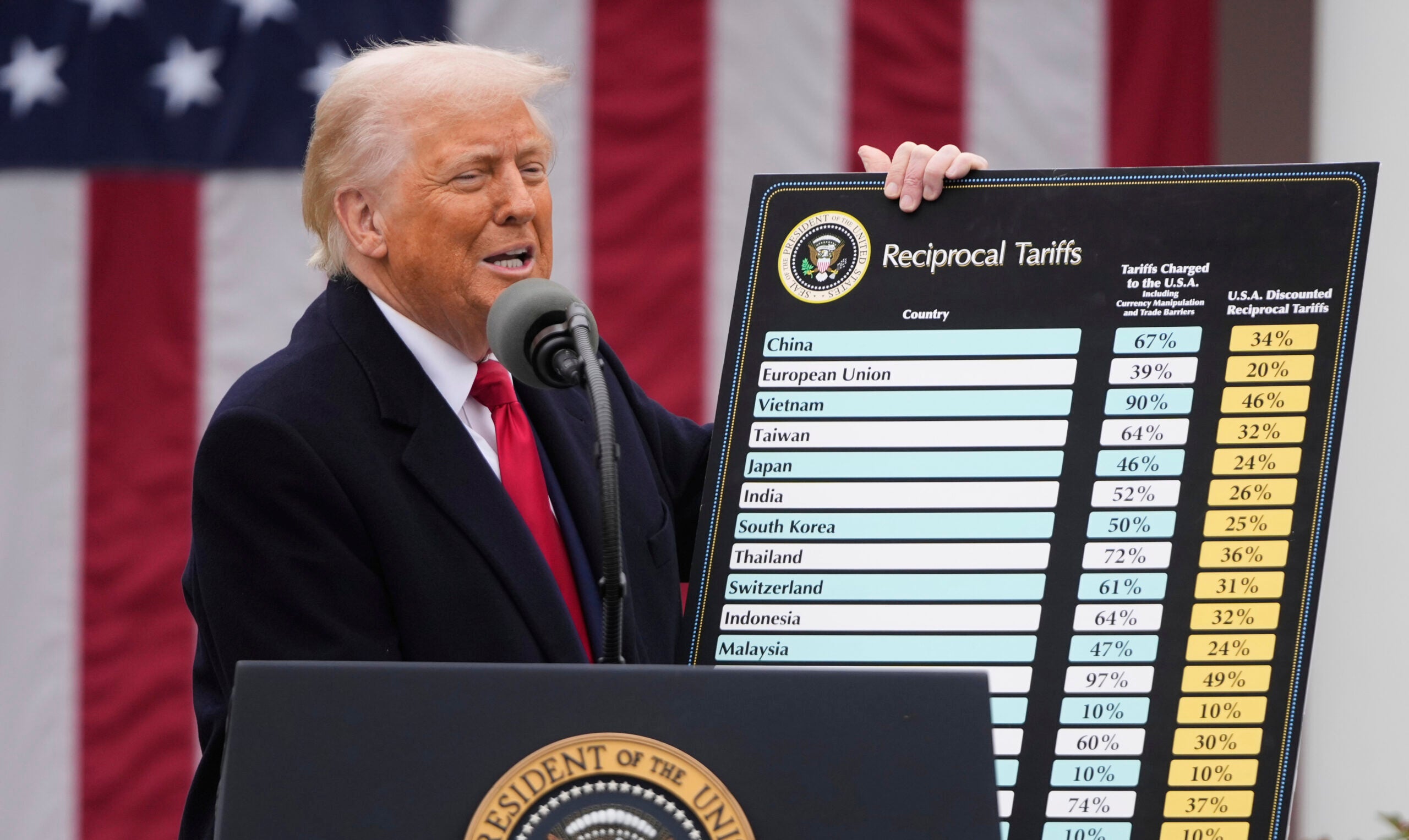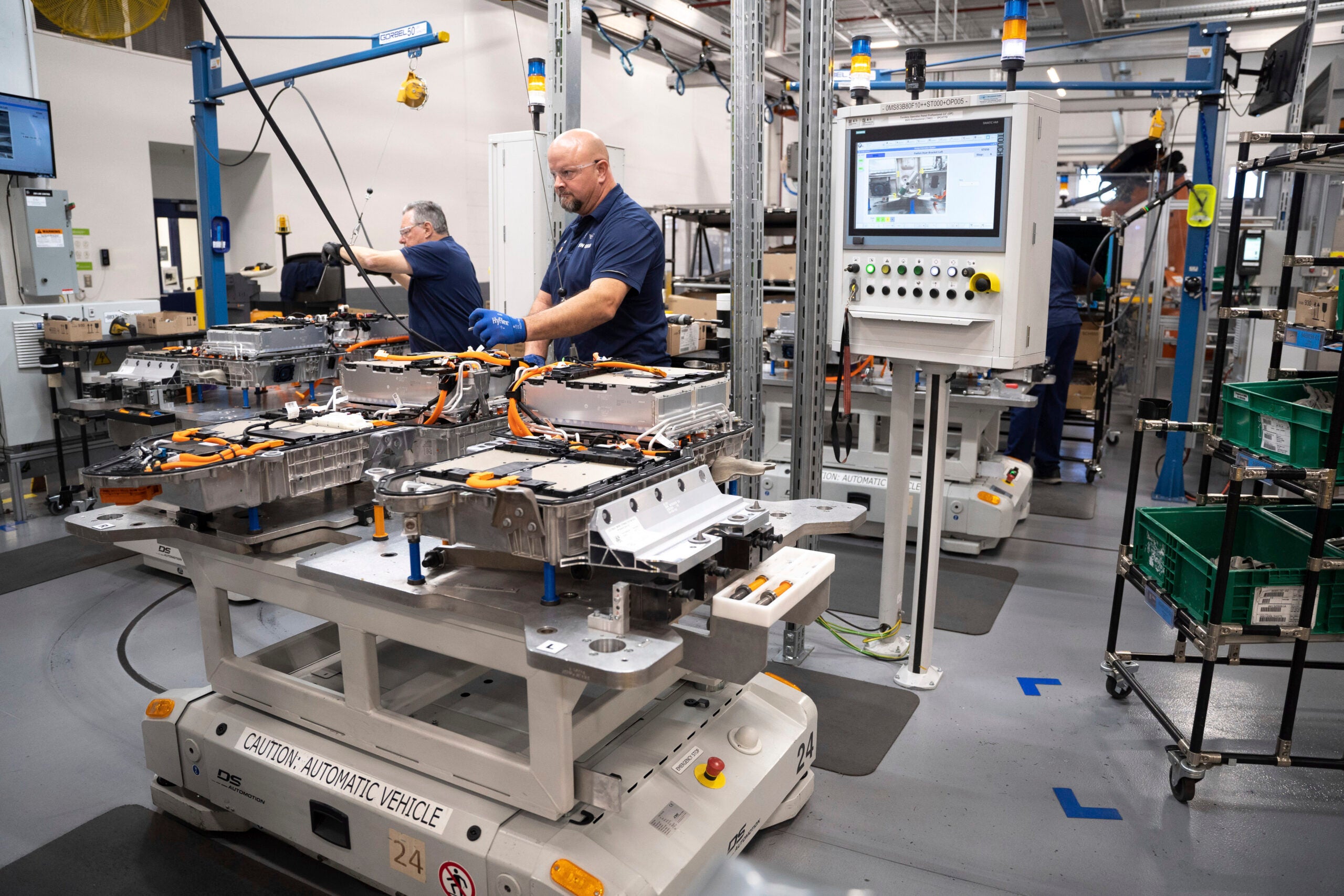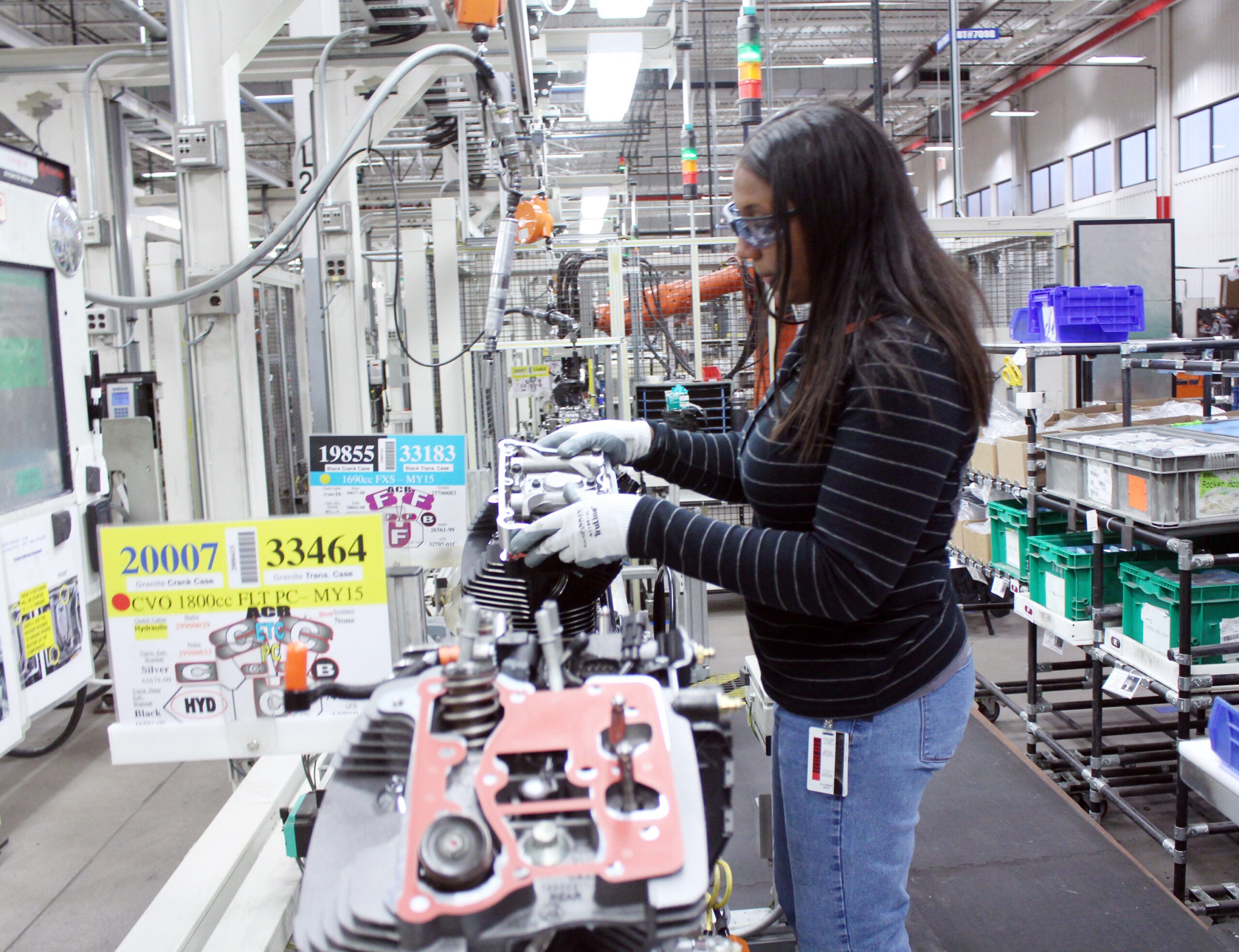President Donald Trump’s expanded tariffs on steel and aluminum are expected to drive up costs for Wisconsin manufacturers but have less of an impact on homebuilders.
Earlier this week, Trump imposed 25 percent tariffs on all steel and aluminum imports, removing exemptions from his 2018 steel tariffs and raising the tax on aluminum imports from 10 percent.
More than a quarter of Wisconsin’s manufacturing base is heavily dependent on metals, said Buckley Brinkman, executive director of the Wisconsin Center for Manufacturing and Productivity, a public-private partnership that provides resources to manufacturers.
Stay informed on the latest news
Sign up for WPR’s email newsletter.
“Generally, manufacturers are working on a pretty thin margin,” Brinkman said. “If metal components are 40 percent of their cost of goods sold, they do not have the margin capability to absorb the new tariff. That’s going to have to be passed along to their customers.”
Kip Eideberg is the senior vice president of government and industry relations for the Association of Equipment Manufacturers, a national trade group based in West Allis. He says equipment manufacturing supports more than 181,000 jobs in the state.
Eideberg said his members rely on steel to build the industrial equipment they produce, and the tariffs will drive up the cost of imported and domestic steel.
He estimates Trump’s tariffs on steel will increase the cost of making equipment in Wisconsin by between 7 and 9 percent.
“It will become more expensive for us to do what we do best, which is to build equipment, invest in our communities and create jobs,” Eideberg said. “The president’s stated goal here is to make manufacturing great again. This is not going to do that.”
In the construction industry, Alicia Naleid, a spokesperson for the Wisconsin Builders Association, said the steel and aluminum tariffs will primarily affect companies working on commercial or multi-family housing developments.
“The steel and aluminum tariffs aren’t something that are necessarily detrimental to the single-family homebuilding industry, and we don’t anticipate that those tariffs will continue to have a huge impact on single-family homebuilding,” she said.
In addition to the metal tariffs, Trump on Thursday ordered advisers to calculate new tariff levels for other countries that take into account their tariffs and trade policies.
Eideberg said Trump’s announcement creates even more uncertainty for companies navigating international trade, calling tariffs a tax that drive up costs for consumers.
“The consumer price index is going up — things are more expensive,” he said. “This is not going to be good for the U.S. economy. It is not going to be good for our global competitiveness.”
Eideberg said his association estimates the steel and aluminum tariffs from the first Trump term led to a loss of roughly 20,000 jobs in the equipment manufacturing industry nationally over an eight year period.
“I’m sure that number will be much bigger this time around,” he said, noting the administration is eying wider-reaching tariffs than in Trump’s first term. “The impact will be far more significant on jobs, on delayed investments.”
Proposed Mexico, Canada tariffs would impact homebuilders
Trump already instituted new 10 percent tariffs on all Chinese imports earlier this month.
Twenty-five percent tariffs on imports from Mexico and Canada are also expected to begin in March. Those duties were initially going to take effect in February until Trump met with leaders in those countries.
Canada and Mexico are Wisconsin’s biggest trade partners. Canada purchased $8.5 billion in Wisconsin exports as of 2023 and Mexico bought $4.3 billion in state imports.
“There’s a lot of cross-border business that happens with both of those countries,” Brinkman said. “Anytime you put a tariff in place, you’re going to affect those flows.”
Naleid said tariffs on imports from Mexico and Canada would have a larger effect on single-family homebuilders than Trump’s steel and aluminum tariffs.
She said the U.S. imports a lot of lumber from Canada and a lot of lime and gypsum from Mexico. Naleid said the tariffs could cause the cost of construction materials to increase by $3 billion to $4 billion nationwide.
“That could cause some supply chain challenges and adding layered costs that may impact a builder’s ability to deliver and start on new projects,” she said. “While it will obviously have a ripple effect and increase the cost of housing, only 7 percent of materials that are used in new home construction come from outside the United States.”
Tariffs creating uncertainty for Wisconsin companies
The ever-changing threat of tariffs has created looming uncertainty for Wisconsin companies.
Harley-Davidson President and CEO Jochen Zeitz told investors last week that the company didn’t have a clear view of what tariffs were coming when and for how long they could last. Zeitz said the company had not yet incorporated tariffs into its outlook for 2025.
“We have and are continuing to take all possible actions to mitigate the impact of tariffs and will continue to take precautionary measures where possible,” he said.
He said the bikes in the company’s “core product segments” are made in the U.S., and Harley-Davidson plans to “fight aggressively” against possible retaliatory tariffs on its products in other countries.
Molson Coors Beverage Company CEO Gavin Hattersley answered investor questions about tariffs during an earnings call Thursday. On the metal tariffs, he said the company has made changes to its aluminum sourcing in recent years, and now sources all aluminum used in products made for U.S. consumption from the U.S.
“There is uncertainty,” Hattersley said. “We’re in the same boat as most other businesses as it relates to tariffs with the exception of the fact that we produce almost all of our products in the market in which they [are] consumed.”
Wisconsin Public Radio, © Copyright 2025, Board of Regents of the University of Wisconsin System and Wisconsin Educational Communications Board.

